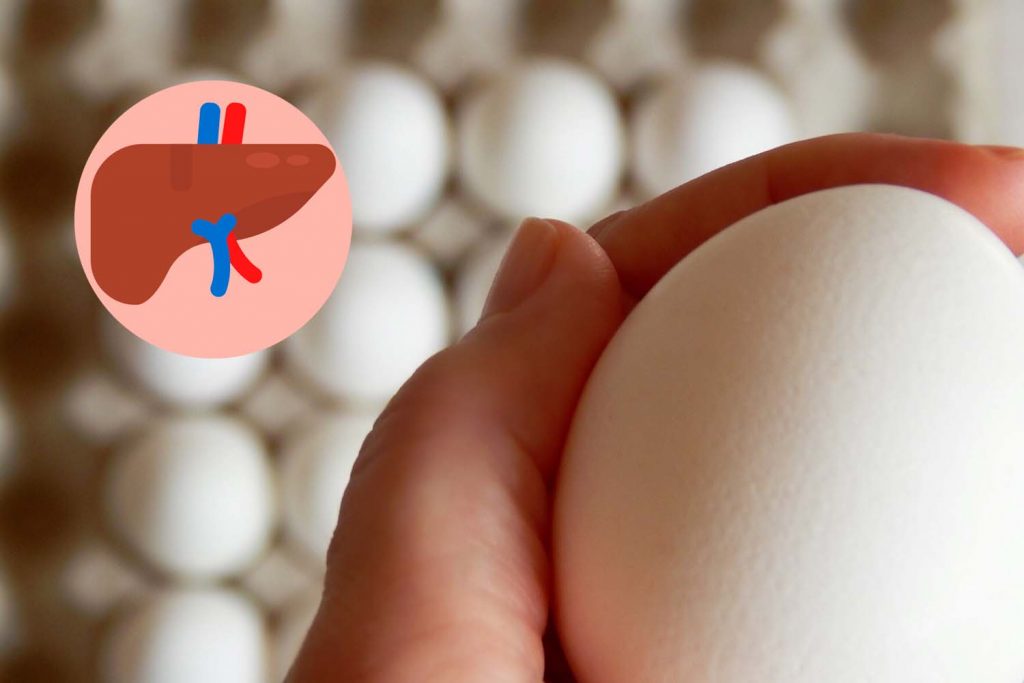01 Nov Importance of a healthy liver for egg production

Liver health is very important for egg production, as it is involved in the synthesis of the nutrients present in the egg yolk and in the formation of the eggshell.
The liver is one of the most metabolically active organs in the bird and its function can be altered when the animal is exposed to toxic compounds, which is more frequent in birds with long lifespans, such layers and breeders. It is involved in key digestive, metabolic and excretory activities:
- Metabolism of proteins, fats and carbohydrates, which are necessary for egg yolk formation.
- Absorption of fat-soluble vitamins A, D, E and K; storage of vitamin A; activation of vitamin D (related to the metabolism of calcium and eggshell formation) ; activation of vitamin K ; storage of water-soluble vitamins B1, B2 and niacin.
- Metabolism of iron, copper and cobalt.
- Erythropoiesis (formation of red blood cells)
- The liver is involved in the detoxification of the endogenous and exogenous toxins: it transforms non-water-soluble toxins into water soluble waste products that can be excreted through urine.
As the liver is involved in so many processes, whenever it is malfunctioning birds will be affected by health problems, poor egg quality and low productivity. Therefore, special attention must be paid to liver health, particularly in layers and breeders.
Appearance of a healthy liver
After hatching, the lipids of the yolk, which is in the process of being reabsorbed, give the liver a bright yellow color, that changes gradually to brown between 8 and 14 days of age.
Changes in the liver color or texture, fat deposition, or necrosis may indicate the presence of disease.
However, it must be taken into account that liver color observation should be done within 30 minutes post-mortem, otherwise the result could be misleading. Moreover, the method chosen for euthanizing the bird may change the appearance of the liver (if the animal is bled, the liver may appear pale).
Keeping the liver healthy with certain nutrients and phytogenics
Vitamin E to enhance general liver health
Vitamin E is one of the most potent antioxidants in nature. It plays a key role in neutralizing free radicals or reactive oxygen species (ROS), as we discussed in this post.
The biological activity of vitamin E is not limited to its antioxidant properties: it is involved in the regulation of the following processes: inflammatory response, gene expression, certain enzymes, cellular signaling, and cell proliferation.
Vitamin E is protective against substances that are toxic to the liver and provides antioxidant and cytoprotective activity to hepatocytes.
During fatty liver disease, the administration of vitamin E reduces the deposits of fats in the hepatocytes, ameliorates inflammation and fibrosis and activates certain beneficial metabolic processes in the liver.
Our products PhytoMax© and PlusBreathe© contain vitamin E.
Selenium and zinc
Birds with zinc and/or selenium deficiencies are more susceptible to fatty liver disease.
On the other hand, the administration of zinc and selenium helps to prevent the onset of the hepatic steatosis and to reduce the damaging effects once the animals are already affected by the disease.
Our product PhytoMax© contains organic zinc and inorganic selenium.
Essential oils and other phytogenics that enhance liver function
Certain essential oils, plant extracts and purified compounds of plant origin have liver-protective activity, through several possible mechanisms of action:
- Show antioxidant activity, promoting the natural antioxidant metabolic pathways of the liver and preventing oxidation of lipids.
- Facilitate the elimination of toxins and other harmful substances out from kidney and liver, which is very useful in long live birds because they are frequently exposed to mycotoxins, pharmaceutical products, heavy metals, dioxins and other toxins.
- Reduce the accumulation of fats in the hepatocytes
- Stimulate the secretion of bile, improving feed digestion.
- Possess antinflammatory activity
- Prevent the death of the hepatocytes
Our product PhytoMax© contains essential oils and phytochemicals of natural origin that enhance liver function.
Products of choice
PhytoMax© is a combination of vitamins, chelated calcium, microminerals and essential oils to be given through drinking water. It is intended for layers and breeders to:
- Maintain the levels of calcium and magnesium needed for optimal egg production.
- Reinforce skeletal health.
- Prevent cage fatigue.
- Stimulate the hepatic metabolism and the immune system.
- Improve the quality of the egg and the health of day-old chicks.
- Avoid the drop of the laying rate produced by stress (management, vaccines, hot weather, etc…)
- At the start of the laying period, to boost productivity.
- Prolong the productive life of the hen.
PhytoLiv© is an oral emulsion that contains essential oils, bioactives and vitamins with high antioxidant power. PhytoLiv© is especially useful in the following cases:
- In birds at risk of liver diseases, such as fatty liver, toxins or infections.
- To counteract the negative effects of feeding with oxidized fats or feed contaminated with mycotoxins and heavy metals.
- Before, during or after periods of stress, such as heat stress, vaccination, stressful management practices, diseases, etc
- To improve the taste, color and shelf life of meat and eggs; to increase eggshell quality whenever eggshell defects are related to poor liver function.
- To improve sperm quality and hatchability in breeders.
- To enhance growth, productivity, and efficiency.

Certain health statements may not be applicable in your region.

